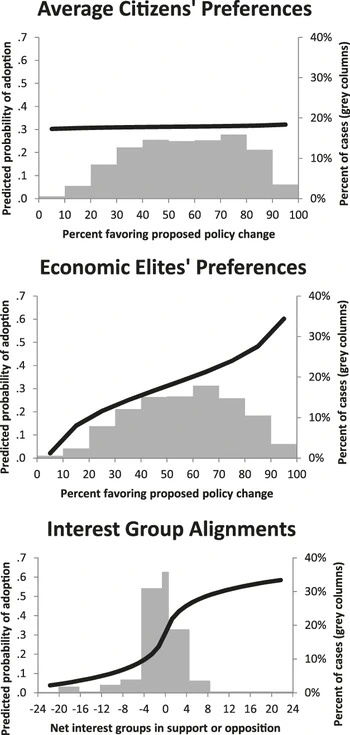- cross-posted to:
- academia@mander.xyz
- cross-posted to:
- academia@mander.xyz
After that, progressives should extirpate the entire Ivy League.
Should Claudine Gay have resigned as president of Harvard? Are conservatives right that a rabidly pro-Hamas left has captured Harvard? Are liberals correct that the fascistic right has launched an all-out assault on academic freedom, at Harvard? The New York Times has explored these questions (about Harvard) over the course of almost 17,000 articles.
These are indeed fascinating topics. However, they ignore a key issue: That for anyone with a progressive perspective, Harvard should neither be reformed (to eliminate its wokeness) nor protected (from the forces of reaction). Rather, it should be razed to the ground.
Then, after Harvard has been razed, we must salt the earth, Carthage-style, so a new Harvard does not grow in its place. Next we have to destroy the rest of the Ivy League. Finally, anyone with enough energy left over should sail an emissions-free ship through the Panama Canal to California and obliterate Stanford.
Let’s start with a story that explains why I’m so personally committed to this cause. Then we can move on to a more rational explanation of why you should be too.
read more: https://theintercept.com/2024/01/06/claudine-gay-harvard-university-ivy-league/
This is the best summary I could come up with:
As I watched Baghdad being bombed, and untold numbers of humans being converted into wet, red scraps of flesh, a tide of emotion swept over me unbidden.
I had unknowingly absorbed a vague sense that there were these dusky foreigners out there, led by a two-bit dictator who’d gotten too big for his britches, who thought that they could defy us, and were being taught that they could not.
But I’m glad I experienced it, because it gave me a visceral sense of how the world feels to the people who ultimately run places like Harvard and Yale.
This gatekeeping would be bad enough if these schools — or anyone — could reliably measure some type of “merit.” People change all their lives, and we shouldn’t have to rely on a cohort of 50-year-olds who fit through an incredibly narrow aperture when they were 18 or 22.
(Christopher Rufo, the right-wing activist instrumental in bringing down Claudine Gay, is “senior fellow and director of the initiative on critical race” there.)
But Salam — Harvard ’01 — once argued, “Kids who attend elite schools are a mixed bag, and the vast majority are crashing bores.
The original article contains 1,515 words, the summary contains 194 words. Saved 87%. I’m a bot and I’m open source!
This is an article from The Intercept. why was it downvoted?
TL;DR - I downvoted because I think the article is dangerous. The title is inflammatory and actionable, and the real intent isn’t clear until the end (promote public schools).
It’s easy to point to a symptom and rally around it, but the result is that the symptom will just change and adapt. Don’t focus on the Ivy Leagues, that’s like killing the golden goose because we’re jealous of the gold. We should instead invest in our own golden goose and have it out compete the other.
I’ll give a few details with quotes from the article (not sequential):
Here’s a measure of the stranglehold the Ivy League has over the commanding heights of the U.S. political system: From 1989 to 2021, a period covering 32 years, five presidents, and eight presidential terms, every U.S. president went to an Ivy League school as an undergraduate or graduate. Even more incredibly, for 28 straight years from 1989 to 2017, the president went to either Harvard or Yale — or, in the case of George W. Bush, both. Then the Harvard/Yale streak was broken by Donald Trump, a graduate of the University of Pennsylvania. Joe Biden went to the non-Ivy University of Delaware.
This isn’t a conspiracy. Rich people go to expensive schools and network with other rich people. Politicians are generally well connected rich people, so chances are very good that they went to an expensive school. They even discuss this later in the article, so the title is inflammatory at best.
Biden is an anomaly. He won partially because Trump was so disliked, and partially because he served as a Vice President under Obama. His political career is incredibly interesting because he wasn’t wealthy, just really scrappy, and he worked his way up the political ranks by being in office for a super long time.
Trump was also an anomaly. He gained fame through his TV appearances and essentially became a household name before running. He then set himself apart by being so belligerent that he got more media time than his opponents. So he didn’t need to be well connected because he was able to create his own momentum.
But in general, you get and keep office by being well connected, and that’s a lot easier if you’re wealthy and go to school with other wealthy kids.
If Ivy Leagues are destroyed, rich people will just make a new one or shift to other private organizations. The problem isn’t with the institutions, but with the process that rewards wealth and connectedness. Attacking a symptom won’t solve the problem.
Then, after Harvard has been razed, we must salt the earth, Carthage-style, so a new Harvard does not grow in its place. Next we have to destroy the rest of the Ivy League. Finally, anyone with enough energy left over should sail an emissions-free ship through the Panama Canal to California and obliterate Stanford.
This isn’t a thing that can really be done, even figuratively. The wealthy will always want a place away from the rest of the public. Instead of trying to eliminate the institution, we should change the systems that reward such exclusivity.
What we want is a country of education for everyone: high-quality public universities open to people of all ages and incomes, beautiful public schools for everyone before that, and enormous libraries in every American neighborhood.
This isn’t at odds with the Ivy Leagues. If we want the best teachers to teach at public universities, we need to pay them appropriately. Private university professors make ~33% more than public school professors, so professors will likely gravitate toward private schools. Likewise for public K-12 school teachers. And the better the pay, the more people are interested in becoming teachers, so the more selection we have.
For connectedness, I think we start by eliminating FPTP. People are hesitant to vote for someone who the party doesn’t approve of because they’re worried about the spoiler effect. So we need to fix our voting system to exceptional candidates can have a shot (e.g. Joe Biden probably would’ve lost his County Council and Senate campaigns if he had to compete against a well-connected Democrat that the party liked).
I think we start by eliminating FPTP.
You’ve correctly identified the tone of the article as hyperbole, but the solutions you’re proposing are somehow more unrealistic than the actions suggested by the article. If you could merely vote away the problem, countries that have implemented FPTP voting would have already solved it.
Building an alternative power base implacable to capital is the only way out of this crisis. Your votes have no effect on policy.

The periods when countries had “good” government were also the periods where capitalists felt threatened. We’ve had bad government for so long, the only realistic solutions left are radical ones.
Eliminating FPTP is necessary, but not sufficient. Ending the Ivy Leagues is neither necessary nor sufficient.
Also, can you provide a few examples of when “good” governments existed? AFAIK, governments have pretty much always sucked because they attract power-hungry people, and each sucks in a unique way. But I am interested in discussing some examples to see if we can find a path forward.
the only realistic solutions left are radical ones
I disagree. The solutions we need merely need collective action, and that can work without radical (read: violent) solutions. Regional solutions leave a power vacuum that will be filled, and probably will be filled by something you don’t want.
The thing that needs to happen is public mobilization toward a non-partisan goal, such as ending FPTP. It’s then important to follow that up with another non-partisan goal to further strip the two party system of power, making room for a third party to take enough seats to force the major parties to reform. During that period, the third party will have way more power despite not having anywhere near a majority, and it can use that to guide public policy by forming coalitions and whatnot. I don’t think that power will last more than a couple election cycles, but it’s feasible.
The current situation is fine, not great, but workable. A radical solution will destabilize things and likely result in a worse situation over the short and medium terms (i.e. decades, not years). So instead of that, a less radical, but concentrated effort should be what the public opts for.
governments have pretty much always sucked because they attract power-hungry people
I don’t dispute this; government is bad. I don’t believe all regimes are equally bad, but this is not due to the virtues of the politicians but the organization of the people with whom rulers had to compete and negotiate with for power.
The period when the Soviet Union was believed to be both communist and a threat to capitalism coincided with the growth of the middle class, the rise of the capitalist welfare state, and the kind of policy that older people still think they can vote back into existence. It was also a period famous for labor strikes, protests, riots, and assassination. Direct action had a greater influence on the policy set by the political class than the preferences of their constituents. Politicians don’t adjust to voters’ politics, it’s the other way around.
To be clear, I don’t advocate for “good” government as a goal, it is a positive side effect of building credible alternatives to capitalism. This also happens to be the only way “good” government can be achieved.
The period when the Soviet Union was believed to be both communist and a threat to capitalism coincided with the growth of the middle class
That’s just coincidence.
The middle class in the US was created by the GI bill, which resulted in millions of former service-members going to school and buying houses. Add to that the economic boom from tons of reconstruction efforts, dominance in trade (everything else was destroyed), and access to lots of low cost labor in regions recovering from the war. That means higher demand for professionals and other middle-class positions vs labor, hence the rise of the middle class.
None of it had anything to do with the Cold War or the USSR.
Likewise, at least in the US, the rise of the welfare state was a reaction to the Great Depression, not anything the USSR was doing. In the UK, it was a reaction to wartime austerity, and while I haven’t checked the rest of Europe, I imagine it’s generally pretty similar.
Those strikes and whatnot are likely also a reaction to post-war expectations. There were stirrings of communist (and fascist) ideology in the west prior to WW2, but after the war it pretty quickly fell off, likely due to a mix of Cold War propaganda and general prosperity. Most of the unrest that followed was due to Civil Rights movements and opposition to war, not demands for drastic economic reforms.
building credible alternatives to capitalism. This also happens to be the only way “good” government can be achieved.
My understanding is that capitalism has had a better track record for “good” government than any other economic system. Look at all the liberal democracies in the west and rights and lifestyles enjoyed by people there vs communist areas.
Yeah, the income gap is probably higher, but so is average standard of living even among the poor. Outside the Great Depression period (where the USSR did far better), the average US citizen was way better off than the average Soviet citizen economically, though the USSR did a fantastic job at literacy and life expectancy. We won’t ever know how Russia would fare had they gone for a liberal democracy instead of communism, but I do sometimes wonder if Russia would’ve followed the US’s path.
The middle class in the US was created by the GI bill
I don’t think I can have a coherent conversation with someone who has such a opportunistic relationship with causality. If you can hand-wave away the enormous political forces that dominated the minds of the capitalists as a historical coincidence with no bearing on their policy or legislation, we don’t share the same reality; I don’t know where to begin to bridge the divide.
I apologize as it seems you started this in good faith, but I don’t think this conversation has any legs.




